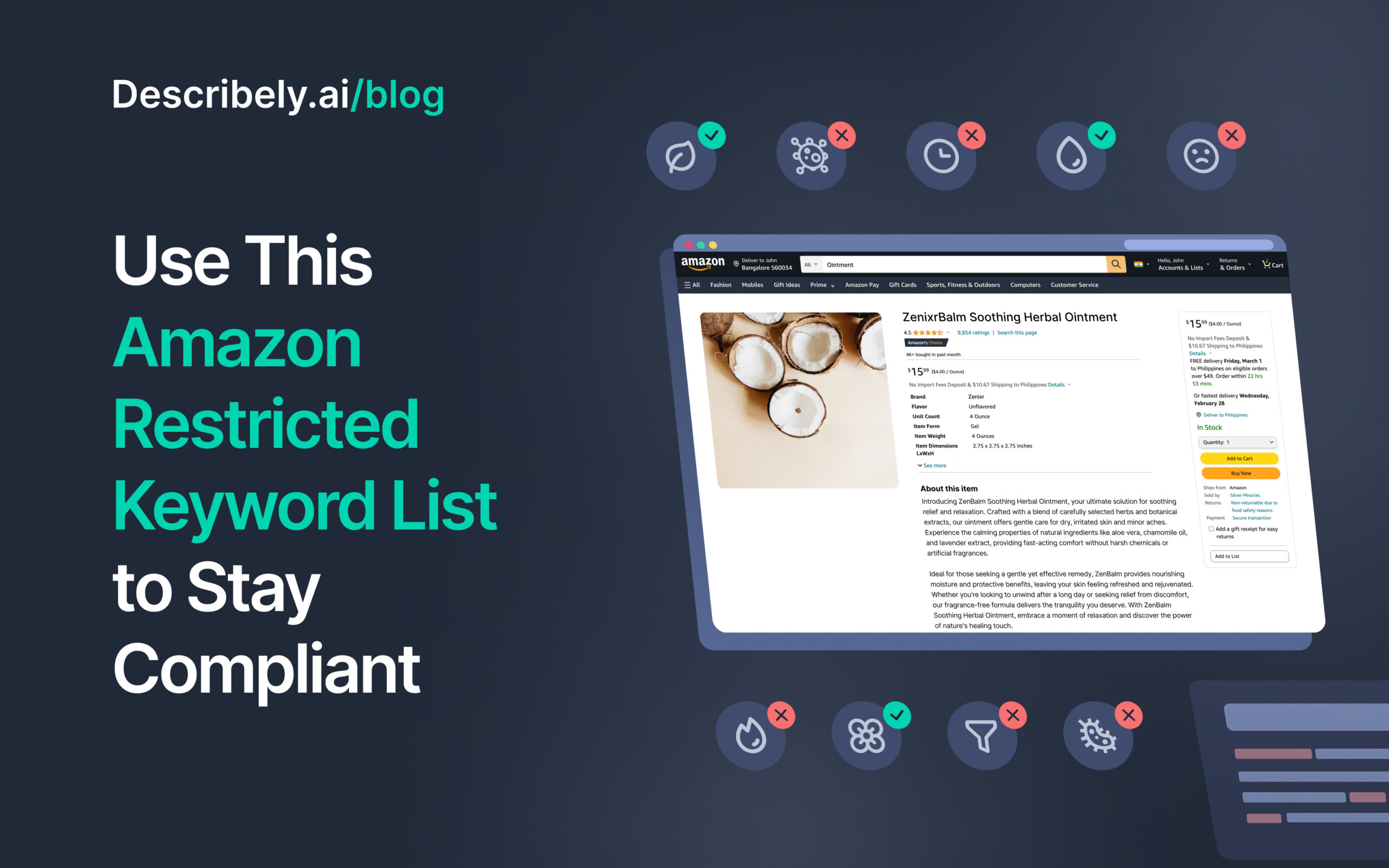
The Best eCommerce Platforms that Drive Sales Online
The eCommerce market has exploded in recent years, with worldwide revenue expected to reach over $4 billion in 2023. This growth has led to an increase in the number of eCommerce platforms and tools available, each offering its own unique features and benefits.
In today’s competitive landscape, it’s becoming increasingly difficult to capture your target audience’s interest and grow your revenue. However, with an abundance of tools available online, leveraging the right eCommerce platforms can improve productivity, grow your top of funnel, and boost your online sales exponentially.
With so many options available, choosing the best eCommerce platforms for your business can be a daunting task. It requires careful consideration of your business needs, budget, and technical expertise. In this article, we will explore eCommerce platforms in different categories available in the market so you make an informed decision on which ones to leverage to propel your online business forward.
Best eCommerce Content Management Systems (CMS)
1. Shopify
Shopify is one of the most popular CMS platforms for eCommerce businesses. It is a fully hosted platform that allows businesses to create and manage their online stores efficiently. With Shopify, businesses can customize their website, manage inventory, and process payments seamlessly. The platform has a user-friendly interface that makes it easy for non-technical users to manage.
One of the biggest advantages of Shopify is its app store. The app store contains thousands of apps and integrations that businesses can use to add features and functionalities to their website. These apps range from marketing tools, to accounting and inventory management tools and more. Additionally, Shopify offers ample resources, tools, as well as 24/7 customer support to make sure you always have all the information you need to quickly set up and successfully run your business.
Shopify offers multiple plans catered to the needs of businesses at different stages. Their Basic plan starts at $39 per month, Shopify plan at $105 per month, and Advanced plan at $399 per month.
Shopify is suited for businesses that are looking for an all-in-one eCommerce solution. The platform’s user-centric resources, wide-ranging apps and tools, and top notch customer support make it a reliable and outstanding platform for your eCommerce store.
2. Wix
Unlike many CMS platforms that require a steep learning curve, Wix’s drag-and-drop interface empowers users to create stunning websites without the need for coding or technical expertise. It puts the power of web design into the hands of anyone with a vision without needing a team of seasoned developers, making it a highly favorable option amongst businesses looking to establish a robust online store quickly.
Wix provides essential eCommerce features like product management, secure payment processing, and inventory tracking. It also has versatile third-party apps that enable users to add tools like live chat, marketing tools, and SEO optimization. It adapts to diverse needs, ensuring that users can tailor their websites to their unique requirements.
Wix offers competitive pricing that ranges from $16 per month, $27 per month, $32 per month, up to $159 per month. The main difference is in each plan’s storage capacity, which affects the number of images, videos, audio, and documents you are able to add to your site. It also comes with various numbers of collaborators included, as well as site analytics and marketing suite options. Overall, Wix is best suited for individuals or small teams looking for a quick and straightforward platform to launch their business.
Best Product Information Management (PIM) Platforms
1. Salsify
With a rich suite of features and a commitment to simplifying complete data management process, Salsify stands out as a leading PIM solution especially suitable for omni-channel selling.
Salsify is a cloud-based PIM software that serves as a centralized hub for all product data. With Salsify, you can manage product information, digital assets, and syndication across multiple channels. This consolidation of information from diverse sources and Salsify’s syndication capabilities ensure that consistent, up-to-date product information is seamlessly delivered and readily available to various eCommerce channels, resulting in great product experience and consistent brand message.
Salsify has robust reporting and analytics features to track product performance. It provides real-time insights into product performance, customer feedback, and content quality. It also offers robust data validation, quality checks, and version tracking, ensuring product information remains accurate and up-to-date. It is a powerful tool for businesses that want to streamline their product information management process and optimize product listings. It also integrates with various eCommerce platforms, including Shopify, Salesforce Commerce Cloud, BigCommerce, and Adobe Commerce.
Salsify is the perfect tool for businesses looking for a centralized tool to enrich and syndicate product data across multiple channels. Its robust features and powerful data management ensure a unified experience for all users. Describely has a Salsify integration that enables you to seamlessly generate descriptions and manage your products – sign up for a free trial to experience the simplicity and time-saving yourself!
2. Akeneo
If you are a team looking for a comprehensive product management tool that allows you to collaborate seamlessly, then Akeneo can be a game-changer for your eCommerce business. It is underpinned by a range of compelling features as well as a user-centric approach that addresses complex challenges businesses face in managing product data. It is a popular open-source PIM software that helps businesses manage and distribute product information across multiple channels. With Akeneo, you can manage product information for multiple websites, languages, and currencies, allowing you to easily scale and expand.
Akeneo’s strength lies in providing a unified platform where businesses can gather, enrich, and manage product information, digital assets, and tasks. This data centralization streamlines workflows, reduces errors, and ensures consistency across all channels – be it eCommerce websites, mobile apps, or print catalogs.
Akeneo provides a wide range of functionalities and integrations with various eCommerce platforms, making it a versatile choice for businesses using different eCommerce platforms, making the implementation process seamless. It comes with a free option that replaces your spreadsheets with an integrated data management system, as well as a Growth plan that starts at $25k a year that offers hosted solutions. Overall, Akeneo is best suited for businesses that need a flexible and scalable PIM solution.
Best Customer Relationship Management (CRM) Platforms
1. Salesforce
Salesforce Sales Cloud is a widely recognized CRM software used by businesses of all sizes, from small startups to large enterprises. It offers an extensive array of features and a holistic approach to CRM, with functionalities that include sales, marketing, customer service, and analytics.
One of Salesforce’s defining attributes is its commitment to providing a profound understanding of customers with their Customer 360 – a collection of products that offer a comprehensive view of customer service, marketing campaigns, sales opportunities, custom applications, and more. This holistic view empowers businesses with more personalized interactions and stronger customer relationships. Salesforce leverages AI to provide predictive analytics and smart recommendations with their Einstein analytics. This means that users can access valuable insights to make data-driven decisions, predict customer behaviors, and automate routine tasks.
Salesforce offers a wide range of pricing editions depending on your business. Their monthly charge starts at $25 per month, and can go up to hundreds or thousands dollars per month for their custom options. It is best suited for medium to large businesses seeking a CRM solution with comprehensive features and advanced analytics.
2. HubSpot
HubSpot is another leading CRM platform designed for businesses seeking an all-in-one marketing, sales, and service solution. It offers a suite of features that cover lead generation, marketing automation, email marketing, live chat, and customer service – seamlessly integrating CRM, marketing, sales, and customer service tools into a unified platform. This fosters a cohesive customer experience and breaks silos between cross-team functions, cutting out the need to switch between different platforms for their day-to-day operations.
HubSpot’s user-friendly interface and intuitive design cater to businesses of all technical backgrounds. It empowers eCommerce users to get their store up and running quickly instead of grappling with a complex software. It integrates automation and AI seamlessly into its CRM and hub of tools, enabling businesses to automate tasks, personalize marketing campaigns, and gain insights from data, boosting users’ efficiency and delivering a more tailored customer experience.
Hubspot’s CRM Suite Starter plan starts at $40 per month, and includes access to their Marketing Hub, Sales Hub, Service Hub, Operations Hub, and CMS Hub. With its comprehensive tools that allow users to streamline their workflow and have an integrative user experience, Hubspot is an ideal choice for eCommerce businesses looking for an all-in-one CRM solution.
3. Zoho
Zoho CRM is a versatile and affordable option that is especially suitable for small businesses looking to take their operations to the next level. It is renowned for its flexibility and customization capabilities. Its distinctive Canvas design studio allows businesses to tailor the CRM to their unique processes and workflows without the need for complex coding. This adaptability makes Zoho CRM suitable for a wide variety of of industries and business models.
What makes Zoho CRM stands out is its extensive suite of integrated tools and applications. It is equipped with a Sales Force Automation software, designed to help business generate and manage their leads for a more efficient and effective workflow. It also comes with robust process management, customer journey orchestration, omnichannel user engagement, and other features that allows businesses to manage their customer relationships comprehensively.
Zoho CRM offers very competitive pricing, with its Standard plan at $20/month, Professional plan at $35/month, Enterprise plan at $50/month, and their highest Ultimate plan only at $65/month. It is also known for its free plan, which gives users access to most of its features. It is the best eCommerce platform for small business or individual users looking to streamline their customer management process without breaking the bank.
Best Product Content Generators
1. Hypotenuse
Hypotenuse is an AI-driven writing tool, revolutionizing content creation, particularly for those in the eCommerce space. With the capacity to effortlessly craft high-converting, SEO-friendly product descriptions at scale, it’s an invaluable asset for those navigating the dynamic eCommerce landscape.
Hypotenuse boasts an expansive repertoire. This platform offers an array of features and workflows meticulously designed to cover the entire spectrum of your daily operations. From product descriptions to web content, paid ads, and social media copy, its versatile templates have you covered. But it’s the eCommerce-specific functionalities that truly shine. Here, you can harness AI to not only craft descriptions but also efficiently manage your product catalog. Organize your products with ease, whether you’re adding them one by one or importing them via a CSV file. Simply input your product title and features, and within seconds, watch Hypotenuse generate captivating descriptions. Plus, they offer a unique AI image generation feature, empowering you to create visually captivating content for your eCommerce website.
Getting started with Hypotenuse is a breeze, thanks to a 7-day free trial. For individuals, subscription plans begin at $15 per month, while team plans start at $59 per month, with the flexibility to customize based on your word count needs. Hypotenuse also offers an Enterprise plan complete with API access.
If you’re in search of a streamlined, efficient solution to transform your eCommerce store with AI-generated product content, look no further than Hypotenuse. It’s the swift and savvy way to elevate your eCommerce content game.
2. CopyMonkey
If you host your store on Amazon, then CopyMonkey is a tool that is worth considering. Its product description generator specializes in meeting the unique demands and specifications of Amazon listings.
What distinguishes CopyMonkey from other tools are its keyword and feature recommendations. Once you have entered your product title and chosen your marketplace country, CopyMonkey goes the extra mile by presenting a curated list of high-impact keywords based on search volume. Additionally, it provides recommendations for product features that are directly relevant to your product. This feature empowers you to select the most effective keywords and features to enhance your SEO efforts and generate highly engaging product descriptions.
CopyMonkey crafts product descriptions in Amazon’s preferred format, which includes comprehensive descriptions and bullet points. It also conducts an in-depth analysis of your description, pinpointing areas for improvement. This enables you to fine-tune your product listing to align with the rigorous standards of the Amazon platform, ensuring it receives the visibility it deserves among your target customers.
CopyMonkey’s Starter plan is priced at $49 per month and covers up to 6 Amazon listings each month. The Pro plan, priced at $99 per month, grants you the ability to create up to 50 listings monthly. For larger enterprises with custom requirements, CopyMonkey extends its Enterprise plan, featuring tailored pricing and API access. In essence, CopyMonkey is a powerhouse platform that empowers Amazon sellers across diverse industries.
3. Describely
If you are really trying to take your product content and store management to the next level, then you’ve got to try out Describely.
In the ever-evolving world of eCommerce, product content can make or break a sale. It is vital to not only launch accurate and engaging product descriptions, but also regularly update your store and make content improvements to make sure your product content is up-to-date and performing it’s best when it comes to organic search. That’s where Describely steps in as the best product content management platform, transforming how eCommerce businesses create and manage product content.
Describely is specially built with eCommerce content in mind, and has a robust stack of features that can significantly improve the day-to-day productivity of creating eCommerce content. With Describely, you can upload your SKUs to bulk generate engaging product descriptions instantly. It integrates with major eCommerce platforms, resellers and PIMs so you can easily optimize your store and launch updates in real-time. You can also use the Chat feature to utilize the AI with conversational instructions. Describely combines the capabilities of multiple tools into one for centralized product content management, shaving off hours of work.
Describely harnesses cutting-edge AI to generate product descriptions at scale, ensuring consistency and quality across product listings. Beyond mere accuracy, Describely understands the significance of engaging content in product descriptions.
Use Describely’s powerful AI solution to create product descriptions that captivate and inform customers, transforming ordinary product listings into sales-driven narratives that adheres to the brand’s style and voice. The content generated by Describely is not only well-crafted but also SEO-optimized, so you can outrank your competitors on target keywords and attract your target audience.
Whether you’re a small business or a large enterprise, Describely is the best eCommerce platform for writing product content. It offers a generous freemium plan, and their Core plan starts at only $9/month. You can fully customize your plan based on your needs, making Describely suitable for a wide spectrum of eCommerce users. With its powerful features and simple interface, Describely is the perfect solution to help you streamline your content creation process while enhancing the quality and effectiveness of product listings. Sign up for a free trial with Describely and start automating your product listings today!
The eCommerce industry is constantly evolving, and businesses need to adapt to stay competitive. Content creation, CMS, PIM, and other platforms are great tools for businesses to leverage, allowing you to streamline and automate your marketing efforts, improve customer experiences, and increase sales.
With the rise of eCommerce and the increasing importance of digital marketing, investing in the best eCommerce platforms has become more critical than ever.
Regardless of what products you sell and what platforms you use, creating appealing content that drives sales is key to converting customers and generating sales for your business. Get started with Describely now and let the best AI product content solution generate unique, high-converting, SEO-optimized descriptions for all your products.



